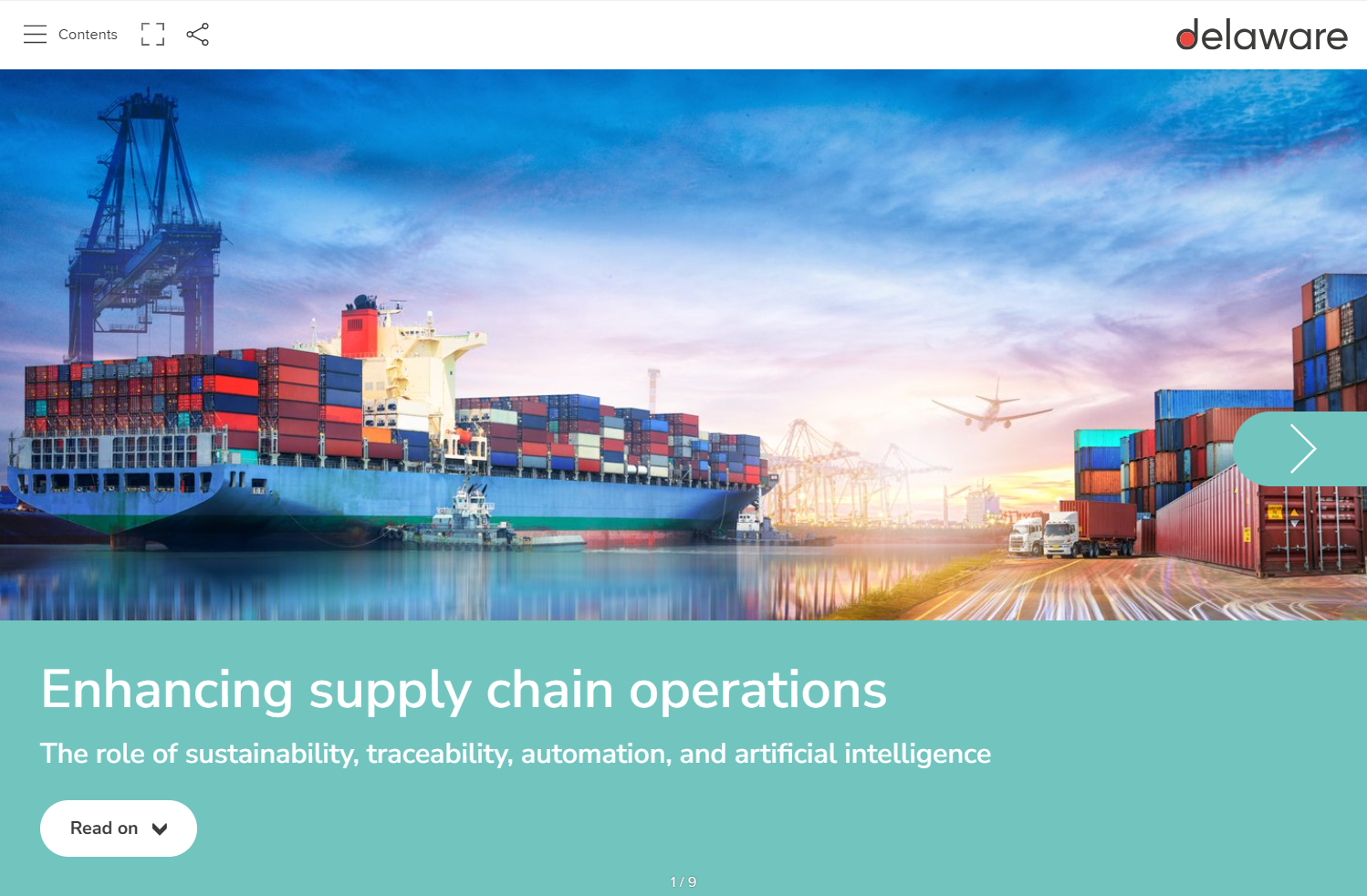While only 18% of supply chains are fully automated, according to Delaware's recent survey, 91% of businesses are either in the process of automating more of their supply chain, or plan to do so within the next five years.
In this blog, we explore the key benefits of automation across supply chains.
Reduced operational costs: By minimising human labour and optimising resource allocation and inventory levels, businesses can significantly lower their expenses, leading to increased profitability. Additionally, automation reduces the likelihood of errors and inefficiencies that can arise from manual processes, further contributing to cost savings.
- Enhanced speed and efficiency: Automation streamlines workflows and processes, enabling faster and more accurate decision-making and problem-solving. This results in quicker turnaround times and better responsiveness to market demands. Furthermore, automated systems can operate continuously without fatigue, increasing productivity and ensuring consistent performance.
- Improved agility and resilience: With increased visibility and traceability across the supply chain network, companies can adapt to changing customer demands and market conditions more effectively. Automation allows for real-time monitoring and adjustment, ensuring that businesses can quickly respond to disruptions and/or opportunities and maintain a competitive edge.
- Boosted innovation and competitiveness: Automation creates new business opportunities and value propositions, helping companies stay ahead of the curve in terms of technology and customer expectations. By integrating advanced technologies such as artificial intelligence and machine learning, businesses can enhance their capabilities, drive innovation, and differentiate themselves in the market.
- Better accuracy and reliability: Reducing manual intervention and gaining a real-time view of business operations leads to more accurate data and reliable processes, which in turn support better decision-making. Automation also minimises the risk of human error and ensures that information is consistently captured and processed, leading to improved quality and consistency in supply chain activities.
- Elevated competitiveness: Having access to data and analytics helps optimise decisions, allowing businesses to better adapt to changing customer demands, market conditions, and environmental factors. By leveraging predictive analytics and insights, companies can forecast trends, optimise inventory levels, and make informed decisions that enhance their competitive positioning.
- Increased customer satisfaction and loyalty: Delivering better products and services, along with improved transparency and communication, enhances the customer experience and fosters loyalty. Automated systems enable more efficient order processing, faster delivery times, and proactive communication, all of which contribute to a positive customer experience and long-term loyalty.
Automation is transforming supply chains, delivering numerous benefits from cost savings to improved efficiency and accuracy. Yet, with less than one-fifth of supply chains fully automated, there is considerable potential for further growth and improvement.
For a deeper dive into the examples of automation technologies used within supply chains, and to understand what is hindering more widespread automation, download Delaware's research whitepaper, Enhancing supply chain operations, below.
/AdobeStock_1092281622(1).webp?mode=autocrop&w=320&h=320&attachmenthistoryguid=57849d53-051a-437a-8faf-03de899e5e81&v=&c=f88b41ddb45b382d622b5406826f1840e33dd8f01945b3a2e19e91730c875611)
/AdobeStock_1092281622(1).webp?mode=autocrop&w=320&h=320&attachmenthistoryguid=57849d53-051a-437a-8faf-03de899e5e81&v=&c=f88b41ddb45b382d622b5406826f1840e33dd8f01945b3a2e19e91730c875611)
